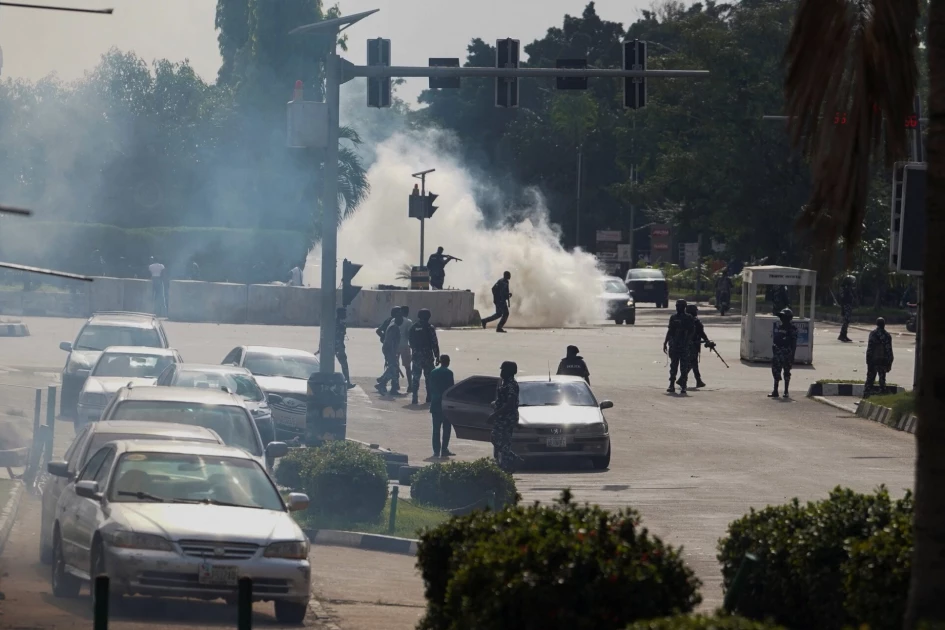Nigeria police detain demonstrators at Abuja protest

Members of the Nigerian Police Force disperse protesters demanding the release of Nnamdi Kanu, leader of the Indigenous People of Biafra (IPOB), in Abuja, Nigeria, October 20, 2025. REUTERS

Audio By Vocalize
Nnamdi Kanu and his Indigenous People of Biafra (IPOB) group advocate for independence for southeastern Nigeria, a sensitive topic in a country that saw a brutal civil war from 1967 to 1970 over southeastern secession.
Roads were blocked and the military was stationed at intersections in Abuja, with police firing tear gas at least twice by 7:00 am (0600 GMT), AFP journalists saw, disrupting plans by protesters to gather in support of Kanu, who is facing "terrorism" charges.
Two hours later police fired gas canisters at a group of reporters gathered outside a hotel before detaining an AFP video journalist. There were no protesters at the scene.
The AFP camera was also damaged when police apprehended the journalist, who was released after more than an hour, without charge.
IPOB and its affiliated paramilitary group, the Eastern Security Network, are accused by rights groups of violently enforcing regular "sit-at-home" orders that shut down markets, travel and schools across the southeast as a form of economic protest.
IPOB has denied enforcing the protests violently, blaming criminals for doing so.
Rights groups have also said that Nigerian security forces have killed peaceful pro-secession protesters with impunity.
Activist and organiser Omoyele Sowore said on X that police arrested Kanu's brother, his lawyer and "innocent bystanders".
A local television channel showed a short clip of a group of less than 20 people chanting "Free Nnamdi Kanu now" before police fired teargas. In the background police and military vans were stationed.
A court order barred Monday's protests from taking place near locations such as the presidential villa or national assembly.
But security forces had deployed across the city.
Police fired tear gas to disperse a crowd gathering in central Abuja before the protest could begin, an AFP video journalist saw.
A few blocks away, more tear gas had been deployed, a second AFP reporter saw, under unclear circumstances.
Later in the day police appeared to be indiscriminately firing tear gas, including at a car that had stopped in an intersection.
Rights groups regularly accuse Nigerian authorities of violating constitutional guarantees for free speech in the country.


Leave a Comment